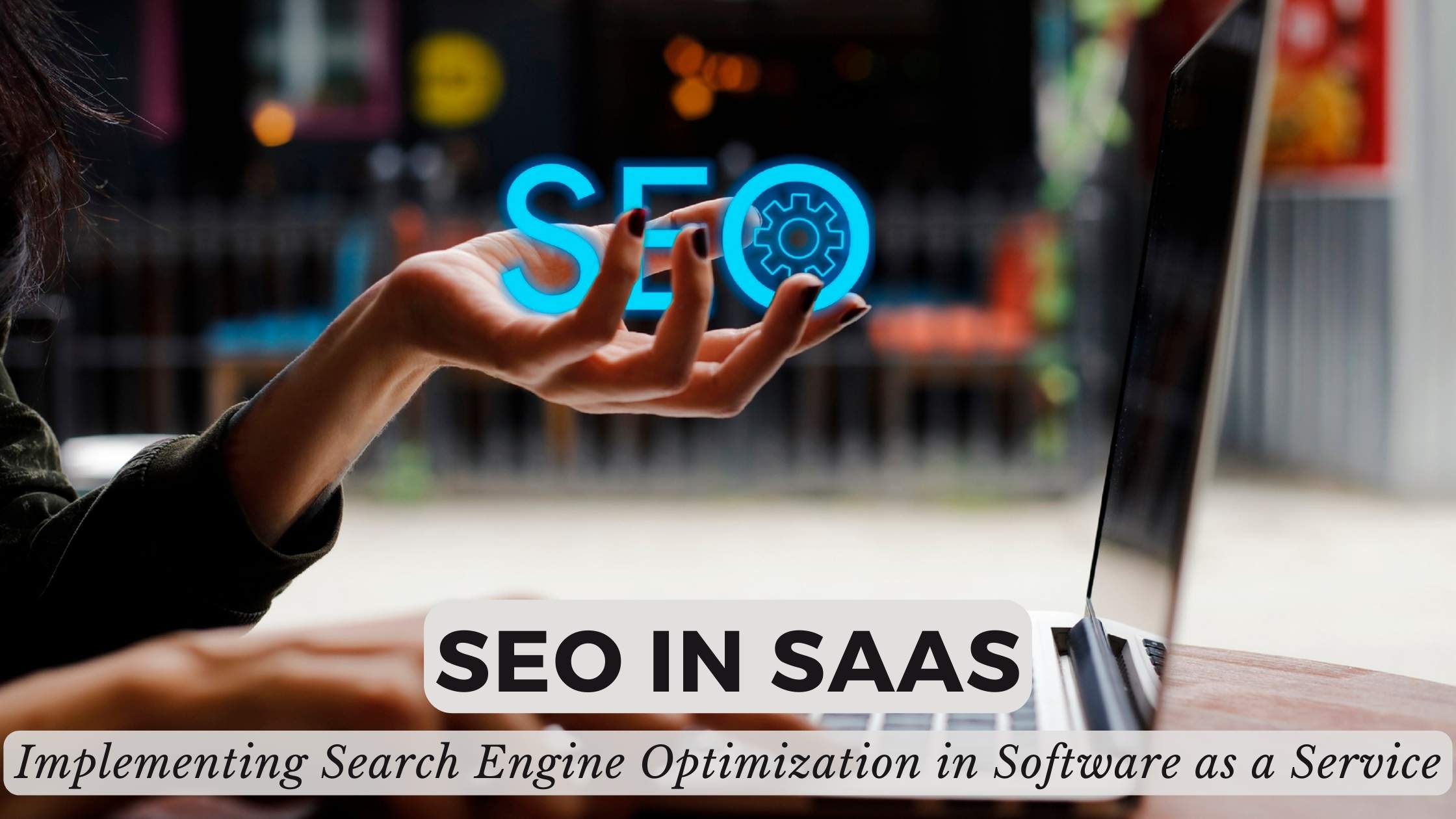SEO in SaaS: Implementing Search Engine Optimization in Software as a Service
- Expense Management Software Credit Cards Investing Business Solutions


SEO in SaaS: Implementing Search Engine Optimization in Software as a Service
Search Engine Optimization (SEO) plays a crucial role in driving organic traffic and visibility for Software as a Service (SaaS) businesses. In this comprehensive guide, we’ll delve into the importance of SEO in the SaaS industry and explore effective strategies for implementing SEO to enhance the online presence and reach of SaaS products.
Understanding SEO in SaaS
SEO in SaaS refers to the process of optimizing a SaaS website or application to rank higher in search engine results pages (SERPs) for relevant keywords and phrases. Unlike traditional businesses, SaaS companies rely heavily on online channels to attract and acquire customers. Therefore, a strong SEO strategy is essential for increasing brand awareness, driving website traffic, and generating qualified leads.
Key Components of SaaS SEO
- Keyword Research: Conduct thorough keyword research to identify high-value keywords and search queries related to your SaaS product. Focus on long-tail keywords that have high search volume and low competition, as they are more likely to attract targeted traffic with higher conversion potential.
- On-Page Optimization: Optimize on-page elements such as meta titles, meta descriptions, headings, and content to align with target keywords and provide valuable information to users. Ensure that your website’s structure is well-organized and easy to navigate, facilitating a positive user experience and encouraging engagement.
- Content Creation: Develop high-quality, informative content that addresses the needs, pain points, and interests of your target audience. Publish blog posts, articles, case studies, and guides that demonstrate your expertise in the SaaS industry and provide solutions to common challenges faced by your potential customers.
- Link Building: Build a diverse and authoritative backlink profile by earning links from reputable websites, industry publications, and relevant directories. Focus on acquiring natural, editorially earned links that add value to your website and help improve its credibility and authority in the eyes of search engines.
- Technical SEO: Ensure that your SaaS website is technically sound and optimized for search engine crawlers. Address technical issues such as site speed, mobile-friendliness, crawlability, and indexability to enhance your website’s visibility and performance in search results.
Tactics for Implementing SEO in SaaS
Now, let’s explore some effective tactics for implementing SEO in the SaaS industry:
1. Create Targeted Landing Pages:
Develop dedicated landing pages for specific SaaS features, use cases, or industry verticals to target niche keywords and attract qualified leads. Optimize these landing pages with compelling copy, relevant keywords, and clear calls-to-action (CTAs) to encourage conversions.
2. Optimize for Voice Search:
With the growing popularity of voice search devices and virtual assistants, optimize your SaaS content for voice search queries. Use natural language and conversational tone in your content, answer common questions concisely, and provide structured data markup to enhance visibility in voice search results.
3. Implement Local SEO Strategies:
If your SaaS product caters to specific geographic regions or markets, implement local SEO strategies to improve visibility in local search results. Claim and optimize your Google My Business listing, solicit customer reviews, and target location-based keywords to attract local prospects and customers.
4. Monitor and Analyze Performance:
Regularly monitor and analyze the performance of your SEO efforts using tools like Google Analytics and Google Search Console. Track key metrics such as organic traffic, keyword rankings, conversion rates, and user engagement to identify areas for improvement and optimize your SEO strategy accordingly.
5. Stay Updated with Algorithm Changes:
Stay abreast of changes to search engine algorithms and industry best practices to adapt your SEO strategy accordingly. Follow reputable SEO blogs, attend webinars, and participate in forums to stay informed about emerging trends and updates that may impact your SaaS SEO efforts.
Relevant SaaS Products
To support your SEO efforts and optimize your SaaS website for search visibility, consider leveraging the following SaaS products:
1. Moz:
Moz is a comprehensive SEO software suite that provides tools for keyword research, rank tracking, backlink analysis, and on-page optimization. With Moz’s suite of tools, you can identify opportunities to improve your SaaS website’s SEO performance and track progress over time.
2. SEMrush:
SEMrush is an all-in-one marketing toolkit that offers features for SEO, content marketing, social media, and advertising. Use SEMrush to conduct competitive analysis, audit your website’s SEO health, and identify actionable insights to improve your SaaS SEO strategy.
3. Ahrefs:
Ahrefs is a powerful SEO toolset that specializes in backlink analysis, keyword research, and competitor analysis. With Ahrefs, you can uncover valuable insights about your SaaS competitors, identify link-building opportunities, and track your website’s SEO performance with ease.
4. Screaming Frog:
Screaming Frog is a website crawling tool that helps you identify technical SEO issues and optimize your SaaS website for search engine visibility. Use Screaming Frog to crawl your website, identify broken links, missing meta tags, and other technical issues that may affect your SEO performance.
5. HubSpot SEO:
HubSpot SEO is a part of the HubSpot Marketing Hub suite that offers tools for keyword research, content optimization, and performance tracking. Leverage HubSpot SEO to optimize your SaaS content for search engines, monitor keyword rankings, and measure the impact of your SEO efforts on lead generation and customer acquisition.
Conclusion
In conclusion, implementing effective SEO strategies is crucial for SaaS companies looking to improve their online visibility, attract qualified leads, and drive business growth. By understanding the key components of SaaS SEO, adopting proven tactics, and leveraging relevant SaaS products, you can enhance the search engine performance of your SaaS website and stay ahead of the competition in the digital landscape.
For businesses seeking comprehensive insights into SaaS tools for sales enablement, CRM, and prospecting, Subscribed.FYI serves as a valuable resource. From industry-leading platforms like Salesforce and HubSpot Sales Hub to specialized tools like LinkedIn Sales Navigator and ZoomInfo, Subscribed.FYI provides detailed information and comparisons to help you make informed decisions about your sales technology stack.
Relevant Links:








